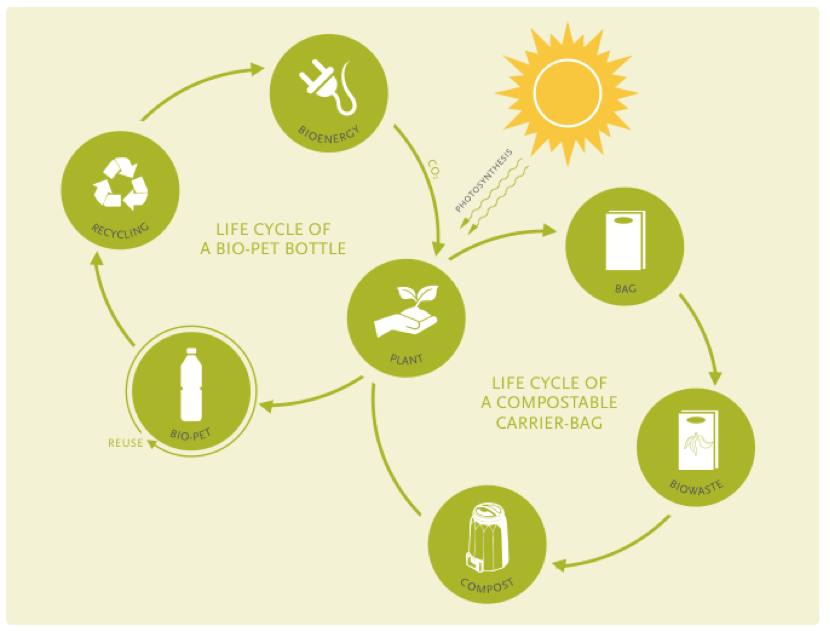On 2 December 2015, the European Commission (EC) published the long awaited new Circular Economy Proposal. European Bioplastics (EUBP) welcomes the EC’s proposal and is looking forward to contributing to the debate on how renewable and biodegradable materials can best fit into this vision. “The proposal is an important step towards closing the carbon loop in Europe”, says François de Bie, Chairman of EUBP.
The Communication ‘Closing the loop – An EU action plan for the Circular Economy’ acknowledges that ‘bio-based materials present advantages due to their renewability, biodegradability and compostability’. The carbon loop, in which bioplastics play a key role, needs to be recognised and supported within the EU’s legislative framework. Furthermore, bioplastics should play an important role within legislation to revise waste targets, as they contribute to multiplying end-of-life options, such as mechanical and organic recycling, and waste to ‘bio’-energy. The material and environmental properties of bioplastics should also be recognised within the context of ecodesign measures.
Unfortunately, the Commission’s proposal to amend the Waste Framework Directive falls short of fully recognising the advantages of organic waste collection for Europe. Organic waste accounts for the largest fraction (30-45 percent) in municipal waste. Yet, today, only 25 percent of the 90 million tonnes of bio-waste in Europe is collected separately and recycled in a resource-efficient and sustainable manner by composting and anaerobic digestion. With the right waste legislation in place, an additional 60 million tonnes of bio-waste could be recycled, which would result in the creation of 30,000 new jobs. (Source: European Compost Network e.V.)
“Even though production will continue to grow, forecasts show that in 2019, more than 95 percent of bioplastics production capacities will be located outside of Europe. If EU Member States want to make full use of bioplastics’ environmental, economic and social potential, they need to tackle the problem of limited economic and political support”, says François de Bie.
